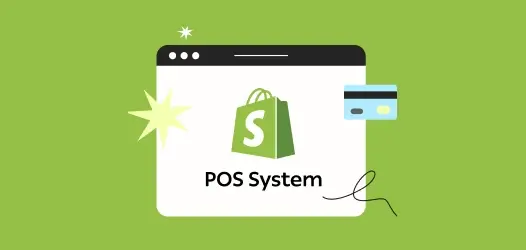Table of Content

Your guide to E-invoicing in Saudi Arabia
Electronic invoicing differs significantly from regular invoices, especially in the Saudi Arabian market, where the second implementation phase is underway. Continue reading to understand the distinctions, requirements, and official service providers.
What is Electronic Invoicing?
-min.png)
An electronic invoice is a bill issued by one entity to another entity or a consumer and is generated and stored through an electronic system.
Electronic invoicing is a new system established by the General Authority of Zakat and Tax (Zatca) in Saudi Arabia for issuing and storing invoices through an electronic system. The first phase was launched in 2021, and it will be mandatory to comply with all system requirements starting in 2023.
This system aims to reduce unregulated economic activities and ensure compliance with tax regulations.
Phases of E-invoicing
Before discussing the implementation stages, we must see to who e-invoicing applies. All business owners are subject of this new procedure and law. Nevertheless, registration in this service is:
- Mandatory: if your annual revenue reaches 375,000 Saudi riyals.
- Optional: if your income ranges between 187,500 riyals and 375,000 riyals.
- Exempt: if your income is below 187,500.
The implementation of this procedure is divided into two phases.
-min.png)
First phase
As of December 4th, 2021. the Generation phase began. All entities subject to Value Added Tax (VAT) were required to issue and store invoices through an electronic system during this period. This excludes non-residents.
Second phase
Starting January 2023, the Integration phase will be implemented in waves, targeting specific taxpayer groups. This phase introduces technical and business requirements for electronic invoices and solutions and integrates these solutions with ZATCA's systems.
The relevant individuals have likely been notified of this matter several months ago.
Consider the following classifications to understand when your turn will be:
Here are the critical requirements for the service from a technical perspective and the essential service providers you can consider working with.
Basic Requirements for Electronic Invoicing Solutions
According to the regulations set by Zatca, the following conditions must be met by the technical solutions seeking to provide electronic invoicing services:
- Compliance with data and information security controls or cybersecurity in Saudi Arabia.
- Tamper-proof and includes a mechanism to detect tampering.
- Compatibility with external systems through Application Programming Interfaces (APIs).
If you meet the criteria for electronic invoicing service, you can choose from the following list of essential service providers to enjoy the service. The General Authority of Zakat and Tax previously published a preliminary indicative list of qualified service providers who have met the requirements to provide the service. However, this list is not legally binding, and the authority does not bear any subsequent consequences.
The list includes numerous names, and here are 10 for your reference:
- Advanced Information Technology Experts
- Afaq for Information Technology
- Al-Ameen for Business Solutions
- Al-Waseet for Information Technology Services
- Emteyaz Accounting Systems
- Arab Ink Trading
- Babel for Software and Information Technology
- Cloud Today
- Dafater
- Foodex
Check the official website for more information on all potential solution providers.
To determine which provider is best for you, you can visit their physical offices and personally communicate with them. You can also visit their LinkedIn profiles to review customer ratings and feedback if available.
Based on our analysis, these four platforms represent the top service providers you can rely on:
1. Rawaa
2. Foodex
3. Fatora
4. Dafater
Once you have met the registration requirements for the service and have reached an agreement with the suitable service provider, consider which platform is best for sending these invoices.
What platforms to use to send electronic invoices
Email is likely the first thing that comes to mind, as it has always been the preferred option for dealing with customers and sending important business messages. It may be a suitable choice depending on the type of your customers. If you are a B2B, email is likely the ideal method, as all commercial activities attach great importance to professional email and regularly check it. However, when dealing with individual consumers, most may not check their email regularly or even ignore it completely. In such cases, mobile phones may be the best means of reaching them.
SMS
SMS messages have a high open rate thanks to their brevity and personal nature. Therefore, sending electronic invoices via SMS may be appropriate to ensure that your customers receive the message and discover its contents.
WhatsApp has become the preferred communication channel for most people in several countries, especially in Saudi Arabia, where it has gained popularity among over 87.4% of the population, with more than 30.67 million users.
Likely, your target audience and customers are already present on this platform, which has a higher open rate than email and SMS. Additionally, WhatsApp API allows integration with external systems such as banks, making it easy for you. You can even automate the process of sending electronic invoices. You can also send the digital invoice file directly instead of a link to the invoice, as is the case with SMS messages, for example.
Table of Content
Table of Content
Resources to help you grow your Business

Does Shopify POS work on a desktop? Shopify POS apps for PCs
Let’s check why retailers want a POS Shopify for PCs and explore our expert pickles of the best Shopify POS desktop solutions.
.webp)
Bulk WhatsApp Messaging Program
Learn the difference between WhatsApp based, programs to send unlimited marketing campaigns and messages. Discover differences between QR programs and API.

Practical Tips to Improve Your Store's Visitor-to-Customer Conversion Rate
Discover practical tips to improve your store's conversion rate, such as automated notifications and popups based on visitors' behavior.








